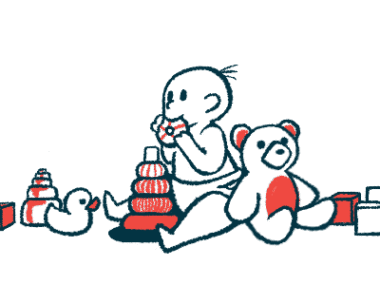Biscayne Licenses Rights of Antiepileptic Therapy Candidate to Chinese Biopharma
Written by |

Biscayne Neurotherapeutics has licensed the Chinese rights to its investigative antiepileptic therapy BIS-001ER to Global Drug Development Centre (GDCC) China in Taiwan, China, Hong Kong, and Macau.
Biscayne is developing BIS-001ER to treat refractory forms of focal epilepsy, including catastrophic pediatric-onset epilepsies such as Dravet syndrome and Lennox Gastaut.
“BIS-001ER is a highly potent form of huperzine A, a synthetic extract of a traditional Chinese medicine with a long history of safe use in neurological disorders,” Stephen Collins, an MD and PhD, president and CEO of Biscayne, said in a press release.
“We look forward to the opportunity to provide technical assistance to our colleagues at GDCC as they develop and market this promising new agent with the potential to help the many epilepsy patients poorly served by current treatments,” he said.
Huperzine A is an acetylcholinesterase (AChE) inhibitor with high brain penetration that promises to offer a unique mechanism of action for the treatment of epilepsy.
It has shown promising efficacy in highly predictive pre-clinical models of refractory epilepsy. Biscayne’s extended release (ER) formulation is designed to enhance tolerability across a range of doses and ensure convenience and adherence to the medication.
Under the agreement, Biscayne will provide expert assistance to GDCC to accelerate the development and marketing of BIS-001ER in China. Biscayne received an upfront payment from GDCC and is eligible to receive milestone payments and royalties on the sale of the drug candidate once it is approved. Other financial detail were not included in Biscayne’s announcement.
“We are delighted to finalize an agreement for the development and marketing of BIS-001ER in China,” Collins said. “The agreement is an example of the multiple benefits we are realizing from our relationship with Quark Ventures and the Global Health Sciences Fund, which led our 2017 Series B financing.”
BIS-001ER showed promising results in an open-label Phase 1b trial (NCT03156439), which tested its safety, tolerability, and pharmacokinetics in eight healthy people.
Trial participants were given the therapy twice a day with a dose escalation every two to three days until a maximum tolerated dose or a maximum dose of 2.5 mg per day was reached.
BIS-001ER achieved its goal of twice-daily dosing and exhibited blood exposure levels that were almost twice as high as the levels researchers usually consider necessary to achieve strong efficacy results. Adverse events reported were mild to moderate, transient, and non-dose limiting.
The company is recruiting participants for an open-label Phase 2 clinical trial (NCT03474770) of BIS-001ER in people with focal (onset) impaired awareness seizures (FIAS), the most common form of adult epilepsy.
Biscayne will examine safety signals and demonstrate seizure reduction in adults with FIAS who receive BIS-001ER as an add-on therapy in an in-patient and out-patient study design.





